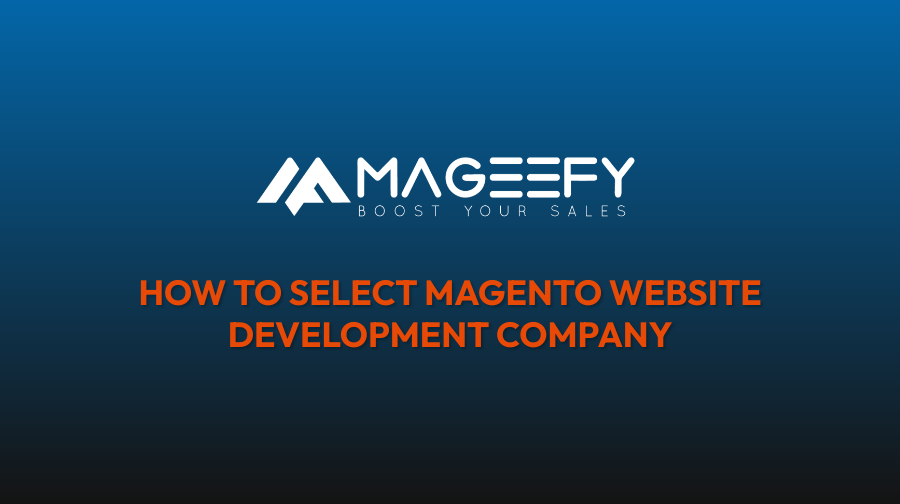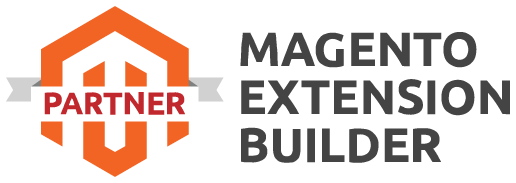
Magento is an open-source e-commerce platform that provides a flexible and scalable solution for building online stores and managing online business operations. It was initially released in 2008 by Varien Inc. and later acquired by Adobe Systems in 2018. Magento is written in PHP and utilizes the Zend Framework.
Magento offers a wide range of features and capabilities to create and customize online stores. It provides a robust set of tools for managing product catalogs, inventory, orders, payments, and shipping. The platform supports multiple payment gateways and shipping methods, allowing businesses to offer various options to their customers. One of Magento's key strengths is its flexibility and extensibility. It offers a modular architecture and a vast marketplace of extensions, themes, and integrations, enabling businesses to tailor their online stores to their specific needs. The platform also supports multi-store functionality, allowing businesses to manage multiple websites and storefronts from a single backend.
Magento has different editions available, including Magento Open Source (formerly known as Magento Community Edition) and Magento Commerce (formerly known as Magento Enterprise Edition). The Open Source edition is free to use and provides basic e-commerce functionality, while the Commerce edition offers additional features and support services for larger businesses.
When selecting a Magento website development company, it's important to consider several factors to ensure you choose the right partner for your project. Here are some steps you can follow:
- Define your project requirements: Start by outlining your project goals, requirements, and budget. Determine what functionalities, features, and design elements you need for your Magento website.
- Research and shortlist companies: Look for Magento development companies that have a strong track record and experience in developing Magento websites. You can find such companies through online directories, referrals, or by searching on platforms like Clutch or GoodFirms.
- Evaluate their expertise: Visit the websites of the shortlisted companies and review their portfolios. Look for examples of Magento websites they have developed in the past. Pay attention to the design, functionality, user experience, and overall quality of their work.
- Check client reviews and testimonials: Look for client reviews and testimonials on the company's website or other review platforms. This can provide insights into the company's reliability, professionalism, and ability to deliver quality results.
- Assess technical skills: Ensure that the company has a team of experienced Magento developers who are proficient in the platform. Check if they possess the necessary certifications, participate in Magento events, or contribute to the Magento community.
- Communication and project management: Evaluate how the company communicates and manages projects. Clear and effective communication is crucial for successful collaboration. Consider if they have project managers or account managers who will be your primary points of contact.
- Consider additional services: Depending on your requirements, consider if the Magento development company offers additional services such as UI/UX design, SEO optimization, maintenance, and ongoing support.
- Request proposals and quotes: Contact the shortlisted companies and request detailed proposals and quotes. This will give you an idea of their approach, timeline, cost estimates, and any additional insights they provide.
- Conduct interviews and ask questions: Schedule interviews with the top candidates to discuss your project in more detail. Ask about their development process, team structure, project timelines, and how they handle challenges and changes during development.
- Consider ongoing support and maintenance: Inquire about the company's post-launch support and maintenance services. A reliable partner should offer ongoing support to ensure the smooth functioning and security of your Magento website.
- Consider the budget: While cost is an important factor, it should not be the sole determining factor. Choose a company that offers a balance of quality, expertise, and affordability within your budget.
- Make your decision: After considering all the factors mentioned above, weigh the pros and cons of each company and make an informed decision based on your research, interviews, and the overall fit for your project.
By following these steps and conducting thorough research, you can find a Magento website development company that aligns with your project requirements and can deliver a successful Magento website. Magento offers a range of features and flexibility, making it a popular choice for businesses of all sizes. If you're looking for Magento development services, here are some key services typically offered by Magento development agencies:
- Magento Website Development: Magento developers can create a customized e-commerce website tailored to your specific business requirements. They will leverage Magento's features and capabilities to build a user-friendly and visually appealing online store.
- Theme Customization: Magento development services include theme customization to ensure your website aligns with your brand identity. Developers can modify existing themes or create a custom theme from scratch to provide a unique look and feel to your store.
- Extension Development and Integration: Magento has a vast marketplace of extensions and plugins that can enhance the functionality of your e-commerce store. Magento developers can develop custom extensions or integrate existing ones to add features such as payment gateways, shipping options, customer reviews, and more.
- Migration to Magento: If you're currently using a different e-commerce platform and want to switch to Magento, development agencies can assist with the migration process. They will ensure a smooth transition of your products, customer data, and other important information to Magento.
- Performance Optimization: Magento development services also focus on optimizing your website's performance for faster loading times and improved user experience. Developers can optimize code, configure caching mechanisms, and implement best practices to enhance your store's speed and responsiveness.
- Support and Maintenance: Once your Magento store is up and running, development agencies provide ongoing support and maintenance services. They can help with bug fixes, security patches, and version upgrades, and provide technical assistance as needed.
- Third-Party Integrations: Magento can be integrated with various third-party systems such as ERP (Enterprise Resource Planning), CRM (Customer Relationship Management), inventory management tools, and more. Magento developers can integrate your online store with these systems to streamline operations and improve efficiency.
When seeking Magento development services, it's important to choose a reputable agency or development team with experience in Magento development. They should have a strong portfolio, positive client reviews, and expertise in building successful e-commerce solutions.
If you're looking for a custom Magento website and eCommerce development services, there are several steps you can take to ensure a successful project. Here's a general overview of the process:
- Define your requirements: Start by clearly outlining your goals, objectives, and functional requirements for your Magento website and eCommerce store. Consider aspects such as design, features, integrations, payment gateways, shipping methods, and any other specific needs unique to your business.
- Choose a Magento development company: Look for experienced Magento development companies or Magento-certified developers who have a track record of delivering high-quality projects. Review their portfolios, client testimonials, and consider their expertise in customizing Magento to meet your specific requirements.
- Initial consultation and planning: Once you've selected a development partner, schedule an initial consultation to discuss your project in detail. This will help the development team understand your business, target audience, and project scope. Collaborate with them to define a comprehensive project plan, including timelines, milestones, and budget considerations.
- Design and development: Based on the agreed-upon project plan, the development team will start designing the user interface (UI) and user experience (UX) of your Magento website. They will create wireframes, mockups, and prototypes for your approval. Once the design is finalized, the development phase begins, where the team starts coding and implementing the functionality.
- Customization and integrations: Magento is highly flexible and customizable. During this phase, the development team will tailor the platform to fit your specific requirements. They will integrate third-party extensions or develop custom modules to add features or functionality that aren't available out of the box.
- Testing and quality assurance: Rigorous testing is crucial to ensure your Magento website is functioning properly across different devices, browsers, and scenarios. The development team will conduct various tests, including functional testing, performance testing, security testing, and usability testing, to identify and fix any issues.
- Deployment and launch: Once the development and testing phases are complete, the team will deploy your Magento website to a live server or cloud environment. They will configure the necessary settings, set up the payment gateways and shipping methods, and ensure everything is ready for a smooth launch.
- Post-launch support and maintenance: After the launch, your Magento website will require ongoing support and maintenance. This includes monitoring for any issues, applying updates and security patches, optimizing performance, and addressing any user feedback or feature enhancement requests.
Remember, this is a general overview, and the actual process may vary based on the complexity of your project and the specific approach taken by the development team. It's essential to have open communication with your chosen Magento development company throughout the entire process to ensure a successful outcome.
How to Hire Top Magento Certified Developers
- Define your project requirements: Determine the scope and goals of your Magento project. This will help you identify the specific skills and expertise you need from a developer.
- Look for Magento certifications: Magento offers various certifications to developers, such as Magento Certified Developer and Magento Certified Solution Specialist. Look for developers who have these certifications as it demonstrates their knowledge and expertise in Magento development.
- Use reputable job platforms: Post your job requirements on reputable job platforms specialized in hiring Magento developers, such as Upwork, Toptal, or Magento's official job board. These platforms allow you to browse through the profiles of developers, review their experience, and hire the ones that best fit your needs.
- Review portfolios and experience: When evaluating potential candidates, review their portfolios and past experience with Magento. Look for developers who have worked on projects similar to yours or have experience with relevant extensions or customizations.
- Conduct interviews and technical assessments: Conduct interviews to assess the communication skills, problem-solving abilities, and cultural fit of the candidates. You can also consider conducting technical assessments or coding tests to evaluate their technical proficiency in Magento development.
- Check references: Request references from the candidates and reach out to their previous clients or employers to gather feedback on their performance, reliability, and work ethic.
- Collaborate on a trial project: If you are uncertain about a candidate's skills, you can start with a trial project to assess their capabilities and compatibility with your team before committing to a long-term contract.
- Consider Magento Community participation: Developers who actively participate in the Magento Community, such as contributing to forums, attending conferences, or being involved in open-source projects, often demonstrate a deeper understanding and commitment to the Magento platform.
Remember to clearly communicate your project requirements, timelines, and budget to potential candidates. This will help attract the right developers who are both skilled and available for your project.

 Register
Register Sign in
Sign in



